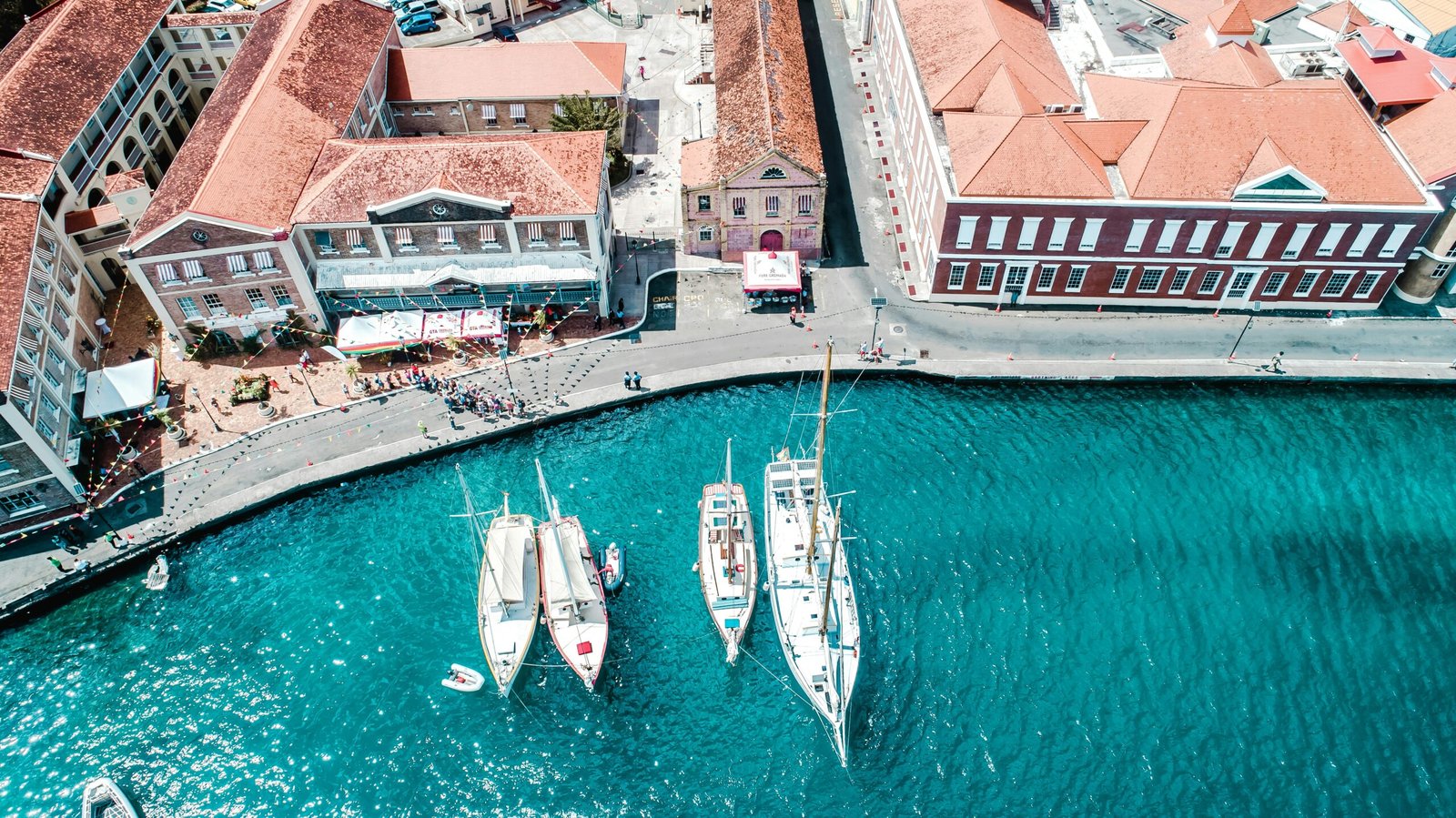Introduction to Smart Cities
Smart cities represent a progressive urban evolution that utilizes advanced technologies to enhance the quality of life for their residents.
The concept revolves around the integration of Internet of Things (IoT) devices, data analytics, and sustainable infrastructure to create a more efficient, livable, and environmentally friendly urban environment.
These cities leverage a range of technologies, including smart sensors, real-time data collection, and innovative communication systems, to optimize various aspects of urban living, from traffic management to energy consumption.
One of the defining features of smart cities is their ability to harness data to drive decision-making.
By employing data analytics, city planners can identify patterns and trends that facilitate efficient resource allocation and improved public services.
For example, smart transportation systems can reduce congestion and enhance mobility for citizens.
This integration of technology not only increases operational efficiency but also fosters a more robust economy, which can play a significant role in boosting export from India.
Sustainability is another crucial aspect of smart cities.
They are designed with environmentally conscious infrastructure, aiming to reduce carbon footprints and promote green practices among residents.
This environmentally friendly approach often includes advancements such as energy-efficient buildings, renewable energy sources, and well-planned public transportation networks.
The sustainable initiatives undertaken by smart cities not only benefit the urban populace but also enhance their attractiveness for international business, consequently supporting efforts in expanding export markets.
Furthermore, these cities serve as pivotal hubs that can facilitate trade and commerce through enhanced connectivity.
As we delve deeper into the relationship between smart cities and export markets, it will become evident how the implementation of technology and sustainable practices in urban areas contributes significantly to the economic landscape, particularly in the context of India’s export growth.
Understanding the Export Market Dynamics
The export market represents a complex and ever-evolving landscape influenced by numerous factors ranging from global economic conditions to technological advancements.
In the current climate, there is a noticeable trend towards increased demand for high-tech products, particularly in the context of smart cities.
These urban developments are redefining the types of goods that gain traction in international markets, creating new opportunities for export from India.
The ongoing transition towards sustainability and increased efficiency in urban environments has spurred interest in products such as renewable energy solutions, intelligent transportation systems, and smart home technologies.
Smart cities demand innovative solutions that can support infrastructure development and enhance the quality of urban life.
Consequently, Indian manufacturers and exporters are recognizing the significance of aligning their offerings with the needs of these burgeoning urban centers.
As nations emphasize developing smart cities, the export market is poised to reflect these priorities. The United Nations projects that by 2050, 68% of the world’s population will reside in urban areas.
This swift urbanization fuels the demand for technologies that facilitate improved resource management, transportation, and overall governance.
Factors such as increasing middle-class populations, urban migration, and a growing awareness of environmental issues contribute to a market that is ripe for investment and innovation.
In response, India’s export strategy is shifting to leverage its capabilities in manufacturing and technology to meet global demands.
The Indian government, in conjunction with private sectors, is developing policies to support industries that are relevant to smart cities, fostering growth and competitiveness in the international arena.
As a result, Indian exports stand to gain from the increased demand for smart city-related products, potentially leading to greater economic growth and bolstering the nation’s position in the global export market.
Driving Demand for IoT Devices
The advent of smart cities has revolutionized urban living and amplified the demand for Internet of Things (IoT) devices significantly.
These intelligent ecosystems utilize interconnected devices to streamline operations, provide a plethora of services, and improve the quality of life for citizens.
One of the primary applications of IoT in smart cities is in the domain of smart transportation.
By integrating technologies such as real-time tracking, traffic management systems, and automated ride-sharing, cities can optimize traffic flows, reduce congestion, and minimize pollution.
This not only enhances the urban experience but also creates an imperative need for sophisticated IoT solutions.
Furthermore, smart utilities represent another critical application of IoT technology. By employing smart meters, energy management systems, and water distribution monitoring, cities can manage resources more efficiently.
These advancements lead to reduced energy consumption, minimized waste, and improved service delivery.
Companies engaged in exporting IoT devices and solutions have found burgeoning markets in smart cities, as urban centers invest in infrastructure enhancements powered by smart technology.
The integration of IoT devices also extends to public safety and health systems.
Through smart surveillance systems, connected emergency response tools, and health monitoring devices, cities can ensure a safer environment and better health services for residents.
In this rapidly evolving landscape, tech companies exporting from India can play a pivotal role by providing the essential hardware and software that enable these smart solutions.
The shift towards smart cities directly correlates with market growth for IoT products, facilitating trade and export opportunities for technology firms looking to expand globally.
Sustainable Infrastructure and Its Export Potential
Sustainable infrastructure plays a pivotal role in the development and functioning of smart cities.
This type of infrastructure is designed to minimize environmental impacts while promoting efficiency and sustainability.
As smart cities evolve, they increasingly incorporate innovative solutions that align with global trends focused on environmental responsibility.
This shift towards sustainability not only enhances the quality of urban life but also presents significant opportunities for export from India.
Key components of sustainable infrastructure in smart cities include renewable energy systems such as solar panels and wind turbines, as well as eco-friendly building materials.
These products are becoming essential in meeting the global demand for energy-efficient and environmentally responsible solutions.
The growing emphasis on reducing carbon footprints has led to a surge in the popularity of renewable energy technologies.
This trend creates substantial export potential for Indian enterprises that specialize in these technologies, allowing them to tap into international markets eager for sustainable development solutions.
Moreover, the shift towards green architecture fosters demand for eco-friendly construction materials such as recycled plastics, bamboo, and sustainably sourced timber.
These materials not only contribute to sustainable building practices but also align with the global movement towards reducing reliance on conventional resources.
Indian manufacturers focusing on these products are well-positioned to capitalize on the expanding market for sustainable goods, promoting both local economic growth and greater international trade.
The focus on sustainable infrastructure is increasingly recognized as a critical factor in the success of smart cities.
By investing in renewable energy and sustainable materials, these urban areas are not only enhancing their ecological footprint but are also creating export opportunities that can position India favorably in the global marketplace.
The intersection of smart cities and sustainable infrastructure thus signifies a promising avenue for boosting export markets, leveraging India’s capabilities to fulfill the growing demand worldwide.
Smart Cities as Innovation Hubs
Smart cities are increasingly being recognized as key innovation hubs for businesses, creating a unique environment conducive to creativity and technological advancements.
In these urban landscapes, local governments and private sector organizations collaborate to develop solutions that address the challenges of modern living.
This partnership fosters an ecosystem where startups can thrive, leveraging the latest technologies and innovative approaches to meet market demands.

The focus on smart technology in urban areas facilitates the creation of diverse products and services aimed at both local consumers and international markets.
Startups benefit from the availability of resources, such as data analytics, Internet of Things (IoT) infrastructure, and smart transportation systems, which allows them to test and refine their offerings more effectively.
For example, a startup specializing in sustainable energy solutions can collaborate with city planners to implement pilot programs that target both environmental sustainability and cost-efficiency, paving the way for scalable solutions that could be exported from India to global markets.
Furthermore, smart cities promote an environment where cross-industry collaboration becomes a norm.
Businesses in various sectors, from healthcare to transportation, come together to share insights and drive comprehensive innovations.
By engaging with different stakeholders, including academic institutions and research organizations, they can cultivate new technologies that enhance urban living.
The synergy created in these collaborative networks not only leads to the development of groundbreaking products but also reinforces the potential of smart cities as platforms for exporting Indian innovations worldwide.
In conclusion, the role of smart cities as innovation hubs is vital.
By supporting collaboration between startups and municipalities, they enable a vibrant ecosystem that not only enhances local economic prospects but also strengthens India’s position in global export markets.
Challenges in Exporting Smart City Solutions
The global landscape of smart cities is rapidly evolving, presenting unique opportunities for companies that aim to export smart city solutions.
However, numerous challenges deter the seamless entry of these innovations into foreign markets.
One primary challenge involves regulatory barriers, as different countries may enforce strict compliance guidelines and technical standards that vary significantly.
Such disparities often require companies to navigate complex legal frameworks, resulting in delays or increased costs in the exporting process.
Additionally, cultural differences pose substantial hurdles. Smart city technologies often hinge on local societal norms, values, and behavioral patterns.
Therefore, companies must engage in comprehensive market research to understand the specific needs and preferences of each target market.
Failure to account for these factors can lead to misunderstandings and reduced effectiveness of smart city implementations, ultimately hindering export success.
Furthermore, adaptability is paramount when designing products for diverse global standards.
For instance, a technology that excels in one region may not perform as well in another due to variations in infrastructure, climate, or governance structures.
As a result, businesses must build adaptable solutions that can be customized to fit the needs of various urban environments.
This flexibility not only facilitates smoother entry into international markets but also enhances the potential for long-term partnerships with municipalities worldwide.
In summary, while the prospects of exporting smart city solutions are promising, companies must carefully navigate the multifaceted challenges they encounter.
By addressing regulatory barriers, recognizing cultural dynamics, and demonstrating product adaptability, they can position themselves for success in the global smart city market.
This strategic approach can significantly contribute to the broader aim of enhancing export from India and other key nations active in developing cutting-edge smart city technologies.
Case Studies of Successful Export Strategies
The integration of smart city initiatives has led many companies to develop innovative export strategies that can serve as effective case studies.
One such example is a leading Indian technology firm that specializes in smart grid solutions.
By leveraging the enhanced energy efficiency and sustainability mandates associated with smart cities, the company successfully penetrated markets in Europe and North America.
Their strategy involved collaborating with local municipalities to demonstrate the potential for cost savings and improved energy management technologies, which ultimately resulted in a significant increase in their export revenues.
Similarly, another case worth noting is an Indian startup focused on smart transportation solutions that cater to urban environments. This company recognized the growing demand for sophisticated urban mobility systems within smart cities.
By forming strategic partnerships with established international firms, they not only expanded their technological capabilities but also gained access to new export markets.
Their approach included adapting their products to meet local regulations and cultural preferences, which has led to their services being widely adopted in various metropolitan areas across Asia and the Middle East.
A third example can be drawn from a manufacturer of smart waste management systems that have been successfully adopted by several cities worldwide.
By capitalizing on the global push towards sustainability and efficiency, they targeted urban areas that are currently undergoing transformation into smart cities.
Through targeted marketing efforts, participation in international trade fairs, and extensive research into potential market needs, this company positioned itself as a leader in exporting innovative solutions.
These case studies exemplify how businesses in the smart city sector can effectively navigate challenges and capitalize on emerging markets, contributing to India’s overall export growth.
Future Trends in Smart Cities and Exports
The evolution of smart cities is set to impact various sectors significantly, including the global export market.
With innovations in technology serving as a backbone for urban development, we anticipate an uptick in interconnected systems that facilitate smoother trade operations.
As smart cities adopt advanced infrastructure powered by Internet of Things (IoT) devices, real-time data analytics will play a crucial role in streamlining logistics, enhancing supply chain management, and improving the efficacy of export from India.
These advancements not only increase operational efficiency but also enhance the overall experience for businesses engaged in international trade.
Another imminent trend shaping smart cities is the increasing emphasis on sustainability.
Governments and urban planners are gradually realizing the importance of eco-friendly solutions that minimize environmental footprints.
This focus will likely lead to an upsurge in green technologies, clean energy applications, and smart waste management systems within urban areas.
As these sustainable practices are adopted, cities will become more appealing for international businesses looking to establish partnerships and expand their exports.
Furthermore, sustainable smart cities resonate well with global consumers who are increasingly conscious of ethical production and environmental impact.
Thus, the shift toward sustainability in urban development could fundamentally reshape import-export dynamics worldwide.
The ongoing integration of artificial intelligence (AI) and machine learning (ML) within smart cities is equally important in foreseeing future trends.
These technologies can enhance analytical capabilities, providing businesses with insights into consumer behavior, market demand, and operational inefficiencies.
By leveraging AI and ML, regions can identify new markets for their products and optimize their export strategies.
Consequently, cities that effectively harness these cutting-edge technologies will have a competitive advantage in the global export market, encouraging innovation and growth in the sector.
Conclusion: The Road Ahead for Smart Cities and Export Markets
The interplay between smart cities and export markets presents significant opportunities for growth and innovation in an increasingly interconnected world.
As urban centers evolve into smart cities, leveraging technology and data analytics, they can enhance the efficiency of various services and infrastructure, which in turn can bolster export capabilities.
The emphasis on sustainable development and intelligent resource management positions these urban environments as vital contributors to global trade.
Stakeholders, including government bodies, businesses, and local communities, play a crucial role in maximizing the benefits that smart city initiatives bring to export from India.
By investing in technology that fosters connectivity and smart infrastructure, cities can support local industries in reaching international markets.
Implementation of smart logistics systems, for instance, can streamline transport, reduce costs, and improve delivery times, ultimately making Indian goods more competitive on a global scale.
Additionally, smart cities can harness big data and analytics to understand market trends and consumer preferences, which can inform production and packaging decisions in Indian export sectors.
This capability allows businesses to adapt quickly to changing demand, ensuring that they meet the needs of international buyers effectively.
The integration of smart technologies also addresses challenges such as urban congestion and pollution, which can hinder export processes. By tackling these issues, smart cities create a more conducive environment for thriving export markets.
In conclusion, the marriage of smart city initiatives with a robust export strategy lays a strong foundation for India’s position in the global marketplace.
As smart cities continue to develop, their potential to catalyze export growth will only expand, necessitating a collaborative approach among all stakeholders.
Embracing innovation within these urban spaces can lead to a sustainable economic trajectory that enhances India’s export capabilities and impacts global trade positively.






No comment yet, add your voice below!